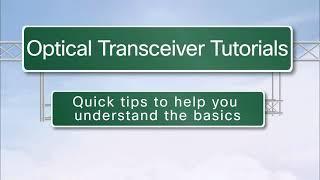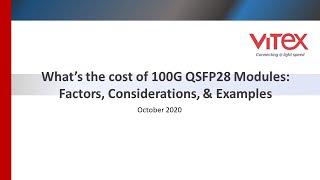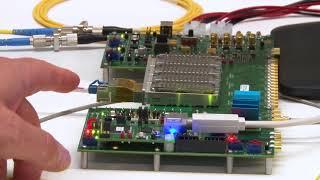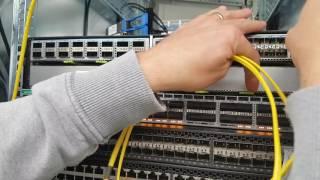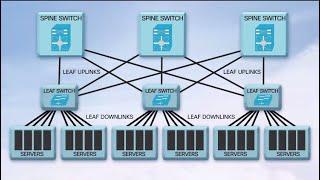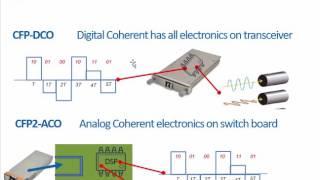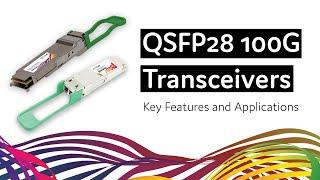What's better, copper or fiber? Will color beat bitrate?
Click to subscribe! ► http://bit.ly/Scopes_Sub ◄
Mike Hoffman and Daniel Bogdanoff continue their discussion with Stefan Loeffler about optical communication. In the first episode, we looked at "what is optical communication?" and "how does optical communication work?" This week we dig deeper into some of the latest optical communication techniques and advances in the industry as well as the use of fiber optic cable in electronics and long-range telecommunication networks.
Now available on your favorite podcast platform and at https://EEsTalkTech.com
This episode: https://EEsTalkTech.com/CopperVsFiber
Twitter: @DanielBogdanoff https://twitter.com/DanielBogdanoff
Learn more about using oscilloscopes:
http://oscilloscopelearningcenter.com
Check out the EEs Talk Tech electrical engineering podcast playlist:
https://www.youtube.com/playlist?list=PLzHyxysSubUnAMeCIi2-S0Vm7YtSAGqx_
https://EEsTalkTech.com
More about Keysight oscilloscopes:
http://bit.ly/SCOPES
Check out our blog:
http://bit.ly/ScopesBlog
Like our Facebook page:
https://www.facebook.com/keysightbench/
Agenda:
Installing and optimizing optical fiber 1:14
We use communication tricks such as phase multiplexing 2:00
There’s a race between using higher bitrates and using more colors
Fiber amplifiers 2:48
You can have up to 80 colors on a single channel! 3:52
How is optics similar to RF? 4:07
Colors in optical fibers are the equivalent of carrier frequencies in RF
There are many multiplexing methods such as multicore, wavelength division, and polarization 4:50
What is dark fiber? 7:07
Optical C-band vs L-band 7:48
Optical fibers are a light show for mosquitos! 8:30
How do we fix optical fibers? 10:36
OTDR or visual light fault detectors are often used
How do we extend the amount of data we can push through a fiber? 11:35
How do we visualize optical fibers? 14:05
We can use constellation diagrams, which plot magnitude and phase
Do we plan for data error? 15:00
Forward error correction is used, but it involves significant overhead
QAM vs. PAM 17:12
How do we evaluate fiber optic cable? 18:02
We can calculate cost per managed bit and energy per managed bit
Energy consumption is a real concern 18:28
The race between copper and fiber 19:13
Fiber wins on long distance because of power consumption
But does fiber win on data rate?
Is there a break-even point with fiber and copper? 22:15
What speed are we at now and what’s the next technology? 23:05
600 G technology will be here eventually 23:05
We typically see 100 G speeds today 24:14
Predictions 26:00
Click to subscribe! ► http://bit.ly/Scopes_Sub ◄
Mike Hoffman and Daniel Bogdanoff continue their discussion with Stefan Loeffler about optical communication. In the first episode, we looked at "what is optical communication?" and "how does optical communication work?" This week we dig deeper into some of the latest optical communication techniques and advances in the industry as well as the use of fiber optic cable in electronics and long-range telecommunication networks.
Now available on your favorite podcast platform and at https://EEsTalkTech.com
This episode: https://EEsTalkTech.com/CopperVsFiber
Twitter: @DanielBogdanoff https://twitter.com/DanielBogdanoff
Learn more about using oscilloscopes:
http://oscilloscopelearningcenter.com
Check out the EEs Talk Tech electrical engineering podcast playlist:
https://www.youtube.com/playlist?list=PLzHyxysSubUnAMeCIi2-S0Vm7YtSAGqx_
https://EEsTalkTech.com
More about Keysight oscilloscopes:
http://bit.ly/SCOPES
Check out our blog:
http://bit.ly/ScopesBlog
Like our Facebook page:
https://www.facebook.com/keysightbench/
Agenda:
Installing and optimizing optical fiber 1:14
We use communication tricks such as phase multiplexing 2:00
There’s a race between using higher bitrates and using more colors
Fiber amplifiers 2:48
You can have up to 80 colors on a single channel! 3:52
How is optics similar to RF? 4:07
Colors in optical fibers are the equivalent of carrier frequencies in RF
There are many multiplexing methods such as multicore, wavelength division, and polarization 4:50
What is dark fiber? 7:07
Optical C-band vs L-band 7:48
Optical fibers are a light show for mosquitos! 8:30
How do we fix optical fibers? 10:36
OTDR or visual light fault detectors are often used
How do we extend the amount of data we can push through a fiber? 11:35
How do we visualize optical fibers? 14:05
We can use constellation diagrams, which plot magnitude and phase
Do we plan for data error? 15:00
Forward error correction is used, but it involves significant overhead
QAM vs. PAM 17:12
How do we evaluate fiber optic cable? 18:02
We can calculate cost per managed bit and energy per managed bit
Energy consumption is a real concern 18:28
The race between copper and fiber 19:13
Fiber wins on long distance because of power consumption
But does fiber win on data rate?
Is there a break-even point with fiber and copper? 22:15
What speed are we at now and what’s the next technology? 23:05
600 G technology will be here eventually 23:05
We typically see 100 G speeds today 24:14
Predictions 26:00
- Category
- Cables and Connectors
Be the first to comment




